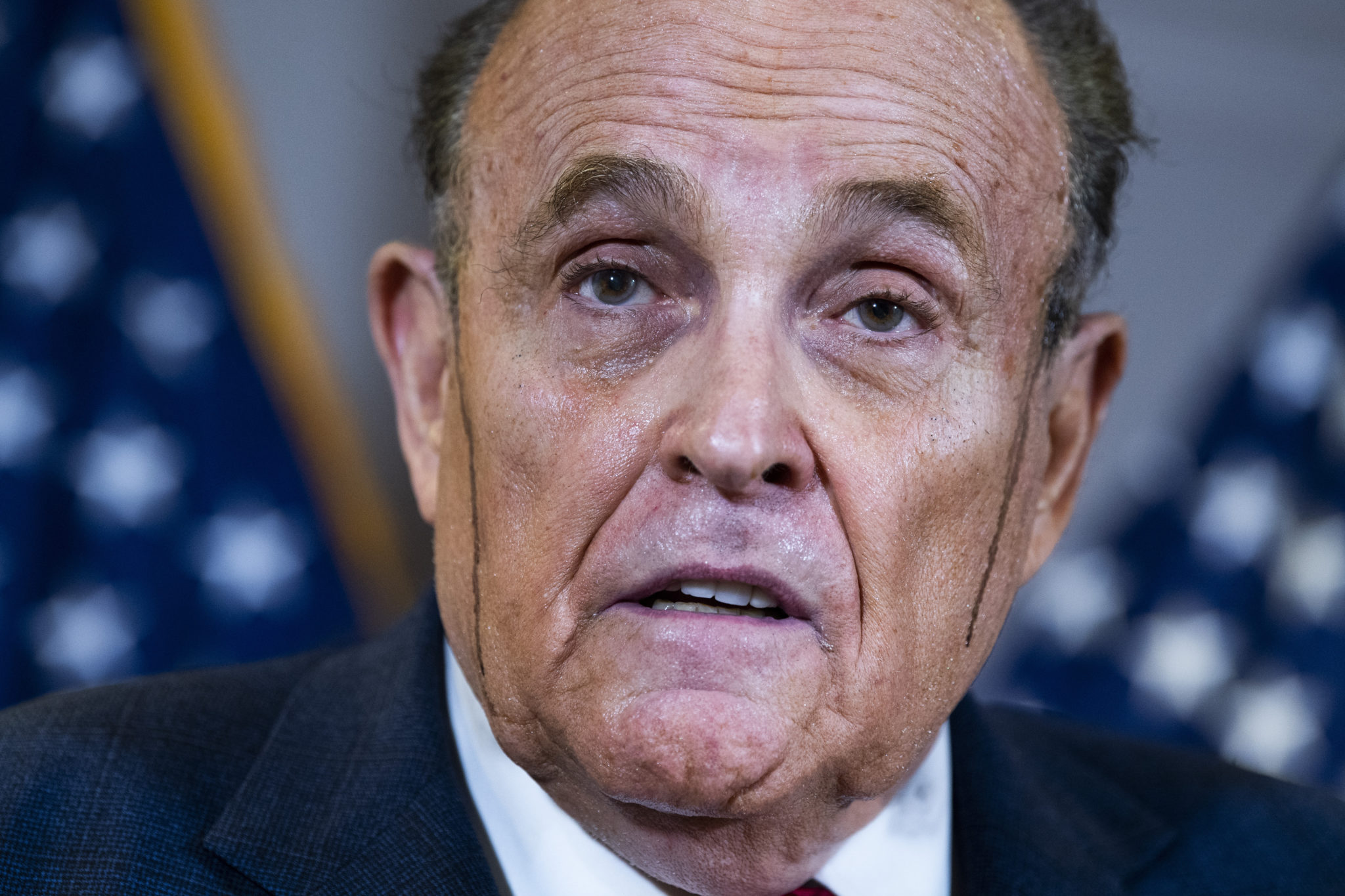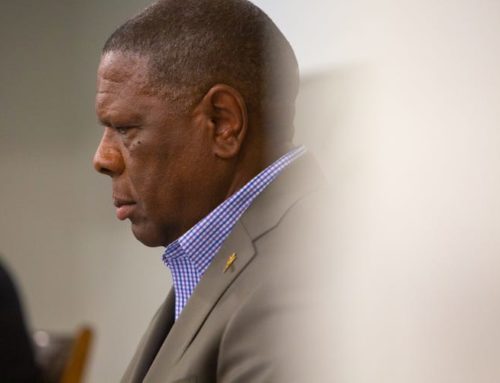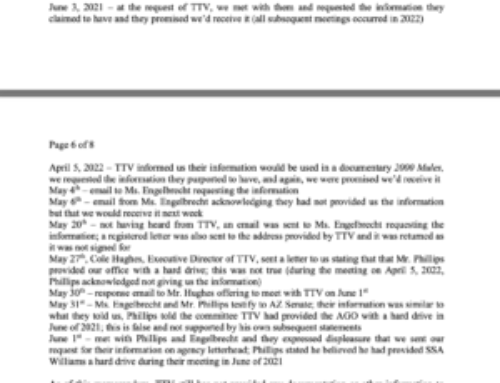This post was originally published on this site

Lawyers on fictional TV dramas are often up to no good: burglarizing buildings, tampering with documents, telling clients to lie on the stand. In real life, if lawyers lie to judges, ask clients to lie to a court, or otherwise break the law, they can lose their license to practice law or face costly sanctions. Indeed, lawyers who peddled the Big Lie—the outlandish claim that some form of “voter fraud” changed the result of the 2020 presidential election—in court are learning this lesson the hard way.
Ex-President Donald Trump’s personal lawyer Rudy Giuliani has already had his New York State law license and his D.C. law license suspended for lying to courts and the public that dead people voted in Pennsylvania and minors voted in Arizona, as well as propagating other tall tales of voter fraud in the 2020 presidential election.
The New York court reviewing Giuliani’s law license concluded that he deserved to lose the ability to practice law for his role in spreading the Big Lie, stating:
There is uncontroverted evidence that [Giuliani] communicated demonstrably false and misleading statements to courts, lawmakers and the public at large in his capacity as lawyer for former President Donald J. Trump … These false statements were made to improperly bolster respondent’s narrative that due to widespread voter fraud, victory in the 2020 United States presidential election was stolen from his client. We conclude that respondent’s conduct … warrants interim suspension from the practice of law.
What happened to Giuliani could be just the start of consequences for the lawyers who spread the egregious falsehood that Trump won the 2020 election.
In August 2021, a federal judge overseeing the so-called Kraken lawsuit, which tried to decertify Michigan’s Electoral College vote for Joe Biden, sanctioned all nine lawyers involved with bringing the meritless case, including Sidney Powell and Lin Wood. Among the sanctions imposed were continuing legal education classes in election law; payment of Michigan’s and Detroit’s legal fees, totaling $175,000; and referral of all nine lawyers to their home state bars for investigation for possible suspension or disbarment.
Wood already had a 1,600-page complaint filed against him pending at the Georgia State Bar. The Georgia Bar asked Wood to undergo a mental health evaluation as part of its investigation of his post-2020 election behavior. Meanwhile, in Texas, the State Bar on November 4, 2021, held an investigatory hearing on a complaint against Sidney Powell, filed by Michigan’s attorney general, Dana Nessel.
In Colorado, the lawyers Gary Fielder and Ernest Walker in December 2020 filed a pro-Trump case “on behalf” of 160 million American voters, alleging a convoluted plot to steal the 2020 election. This lawsuit, which was based on nothing, went nowhere. In November 2021, a federal judge ordered Fielder and Walker to pay nearly $187,000 to defray the legal fees of groups they sued, including Facebook and Dominion Voting Systems. In his sanctions opinion, the judge called the lawyers’ 2020 election lawsuit “one enormous conspiracy theory.”
Then there’s the matter of the lawyer John Eastman. Eastman abruptly retired from Chapman University Law School after he was a speaker at the “Stop the Steal” rally in front of the White House that preceded the Capitol insurrection on January 6. Later, Eastman was revealed as an author of a legal memo arguing that Vice President Mike Pence could reject the nation’s Electoral College votes and thereby unilaterally throw the presidential election to the House. (Pence, to his credit, did not act as the memo suggested.) The California State Bar has received complaints about Eastman that ask it to discipline him. Two weeks ago, the advocacy group States United Democracy Center (whose leadership includes former New Jersey Governor Christine Todd Whitman and the former Obama White House ethics counsel Norm Eisen), filed a 35-page supplement to its original complaint, incorporating new revelations about Eastman’s conduct before and during the insurrection—and the deceptive nature of his descriptions of it after the insurgency failed.
Could the high-ranking lawyers inside Trump’s administration face similar sanctions? This past October, a group of 34 lawyers—including one former acting attorney general and the current inspector general of the Justice Department—filed a complaint against Jeffrey Clark, the former acting chief of the DOJ’s Civil Division. In a December 28 memo to his superiors, Clark proposed that the DOJ claim “various irregularities” in voting in swing states, and urge the legislatures of those states to convene and appoint a Republican slate of electors to replace those chosen by the voters.
Clark’s legal problems are metastasizing. On December 1, the House January 6 committee unanimously voted to refer Clark for criminal contempt of Congress for not answering its questions. The full House has yet to vote on this referral. And complicating his fate, Clark informed the committee that he plans to invoke his Fifth Amendment rights against self-incrimination when he next appears to testify.
All of these lawyers should have known better.
Many of the lawyers who promulgated the Big Lie in and out of court clearly did not learn the lesson of Watergate: State bars care about ethics. Lawyers involved in the Watergate scandal, which involved illegality in the 1972 presidential election, were all disbarred, including G. Gordon Liddy, Charles Colson, John Ehrlichman, John Mitchell (an attorney general), John Dean, and even ex-President Richard Nixon. Herbert Kalmbach, Nixon’s personal lawyer, had his law license suspended and then reinstated. Richard Kleindienst (another attorney general) also had his law license suspended and reinstated.
The fact that so many lawyers were involved in the Nixon White House scandals was an embarrassment for the legal profession. In the wake of Watergate, the American Bar Association beefed up ethical standards through the work of the prominent lawyer Robert J. Kutak, who chaired a committee in 1977 that drafted a new ethical code for the profession. Since the ABA does not license lawyers, Kutak campaigned around the county to convince each state bar to adopt new ethical standards. Forty-nine states improved their ethical rules for lawyers.
Another post-Watergate reform was that ABA-accredited law schools require mandatory professional responsibility classes to train the next generation of attorneys to act more ethically than some their worst predecessors.
Like lemmings falling off a cliff, Trump’s lawyers committed many of the same ethical lapses as Nixon’s lawyers. Now, they are finding out just as the Nixon lawyers did that sanctions and suspended law licenses may be the price for awful behavior. Rudy might be the first to lose his ability to practice law, but he’s unlikely to be the last. This isn’t a partisan matter for the state bars: It’s a matter of maintaining the public’s respect for lawyers and their veracity.



